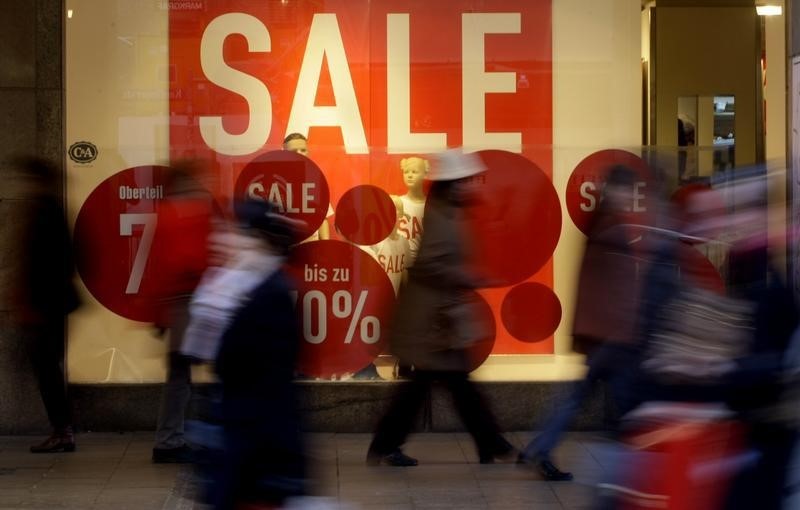BERLIN (Reuters) - German shoppers became more cautious for the first time since October as they headed into July, with alarm about Greece sapping consumers' confidence, GfK market research group said on Thursday.
The GfK consumer sentiment indicator, based on a survey of 2,000 Germans, dropped to 10.1 going into July from 10.2 in June, below the Reuters consensus forecast for an unchanged reading of 10.2.
Rolf Buerkl, an analyst at GfK, said up until now it had seemed that talks on finding a solution to the Greek debt crisis would not have a lasting impact on confidence but a Greek exit from the euro zone had now become plausible.
"This raises doubts in consumers' minds, because the consequences of Greece's departure cannot be predicted at the moment," he said, adding that even the prospect of stronger
German economic growth in the second quarter could not counter that.
The German economy expanded by 0.3 percent in early 2015 and many economists expect it to grow faster between April and June.
GfK said the wrangling over Greek finances and the increasing prospect of default "could cause the motor for consumption, which has been running at top speed, to stutter".
The GfK survey showed Germans felt more optimistic about their future income than at any point since Germany reunified in 1990 thanks to high employment and strong negotiated pay hikes.
GfK said workers could expect their wages to increase by around 3 percent this year and given that inflation is below 1 percent, there will be a noticeable increase in disposable income.
Shoppers felt less willing to make purchases, with GfK saying this could be due to uncertainty, but their inclination to spend remained at a high level overall.
Private consumption has taken over from exports as Germany's main growth driver and GfK said it would remain a major economic support despite its slightly weaker mood among shoppers.
Other recent sentiment indicators have also shown softer business and investor morale.

(